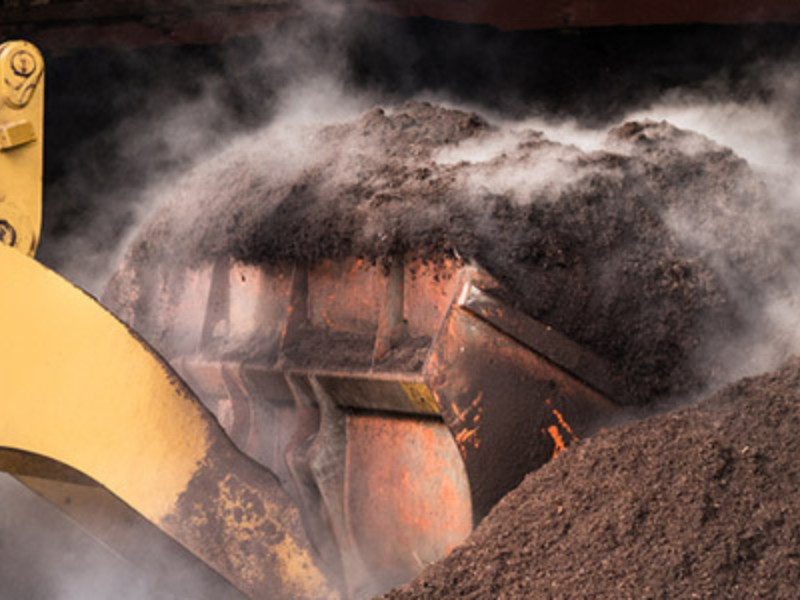Methane Limiting Legislation Brings Change


In the 1990s, Solana Center planned and applied for permits to develop a commercial composting facility in Valley Center. That project didn’t come to fruition, but since then, we’ve taught thousands of people how to compost their own organic waste at home or work, demonstrated real solutions for community-scale composting, connected food-generating businesses with food pantries, and created residential food waste prevention educational campaigns.
One catalyst to create significant change is coming in the form of state legislation. In 2016, AB 1826 went into effect, requiring organizations that generate large amounts of organic waste – yard trimmings and food scrap – to subscribe to a composting or anaerobic digestion service to properly dispose of it. Now CalRecycle is working to finalize the requirements laid out in SB 1383 titled, “Short-Lived Climate Pollutants: Organic Waste Methane Emissions Reductions,” which will make organic material diversion enforceable against jurisdictions by 2022 and against generators by 2024.
The disruption to business-as-usual caused by SB 1383 will be on par with the changes brought about by AB 939, California’s Integrated Waste Management Act of 1989, which mandated that cities and counties reduce the amount of waste going to landfills by 25% in 1995 and 50% by the year 2000. This legislation had a wide-ranging impact on infrastructure, behaviors, and our environment.
Now SB 1383 has set statewide goals in reducing greenhouse gases (black carbon, fluorinated gases, and methane). Organic materials in our landfills release potent greenhouse gases into our atmosphere. Consequently, SB 1383 goals include:
- 50% reduction in the statewide disposal of organic waste by 2020, as compared with 2014 levels,
- 75% reduction in organic waste by 2025, and
- 20% reduction in edible food landfilled by 2025.
The key features of SB 1383 receiving attention are:
- Jurisdictions will be responsible for identifying solutions for organic waste. Beginning in 2022, cities can be fined up to $10,000 per day for non-compliance.
- In 2024, mechanisms will be in place requiring cities to enforce regulations on generators of organic material.
- Jurisdictions will no longer be able to waive their requirements by making a “good faith effort.”
So this is where the rubber meets the road. It’s great to see California taking the lead in protecting our environment, as we did with vehicle emissions control in the 1970s.
In just a few years, we will all be thinking about the resource-value of organic material. Many of you readers do this already, but soon mainstream California will give a second thought before overproducing. We will consider options for salvaging the valuable nutrients and energy stored in food waste, opting to donate excess edible foods and “recycle” by composting or sending to anaerobic digesters the remaining organic material. It will become as common as recycling an aluminum can.
References:
https://www.solanacenter.org/programs/composting-gardening
https://www.solanacenter.org/midscalecomposting
https://www.solanacenter.org/eco-learning-lab-mid-scale-composting-demon…
https://www.solanacenter.org/programs/zero-waste-food-recovery/less-land…
https://www.cawrecycles.org/ab-1826-chesbro-organics-recycling/
http://www.calrecycle.ca.gov/climate/slcp/
http://www.calrecycle.ca.gov/Laws/Legislation/calhist/1985to1989.htm
